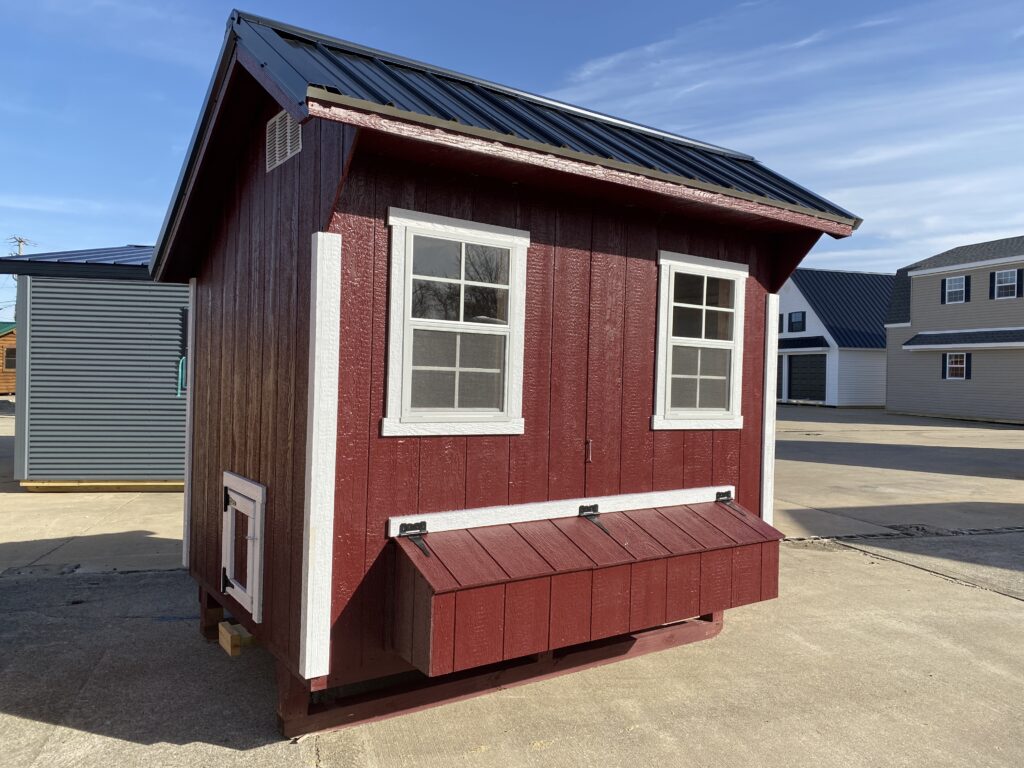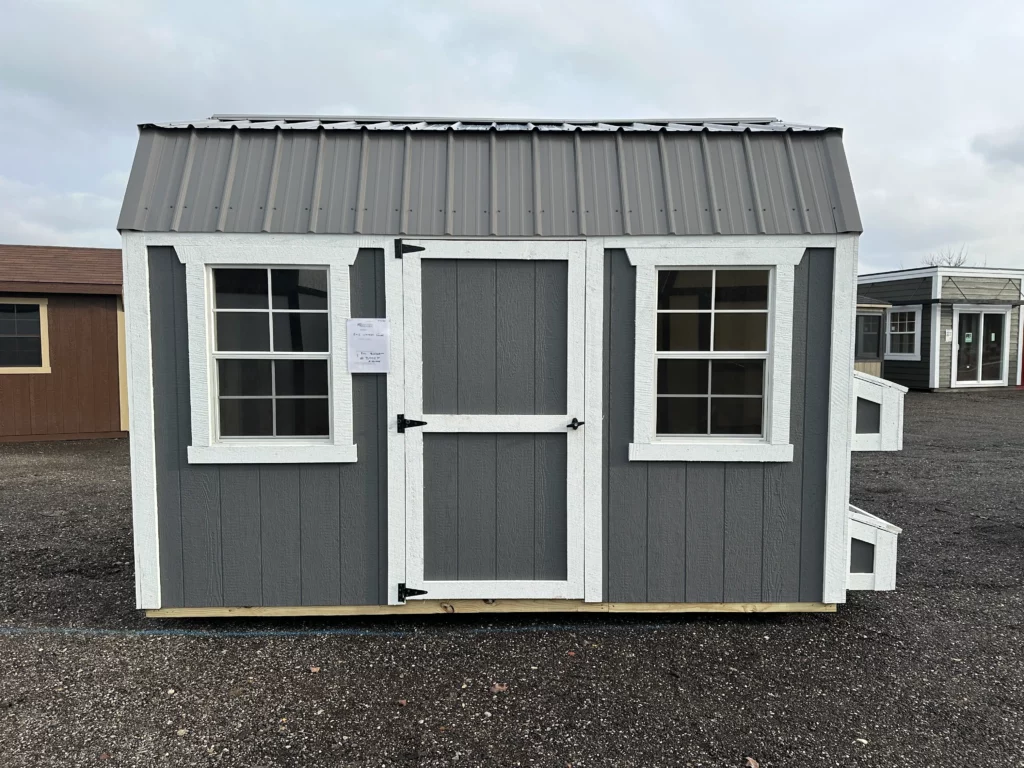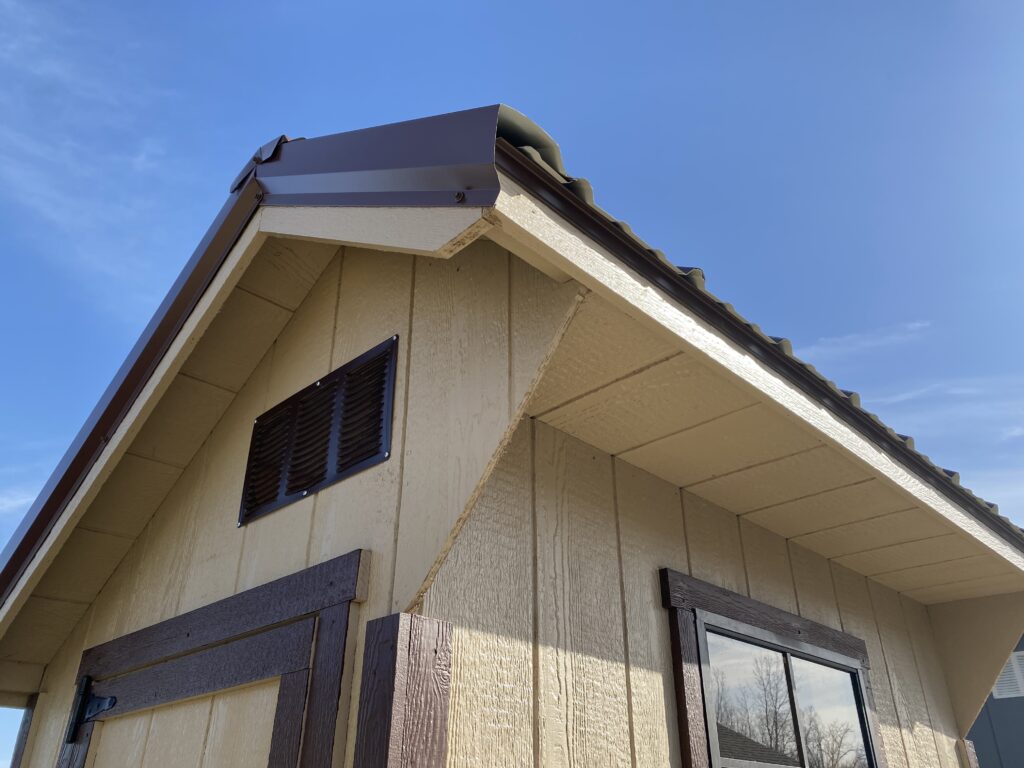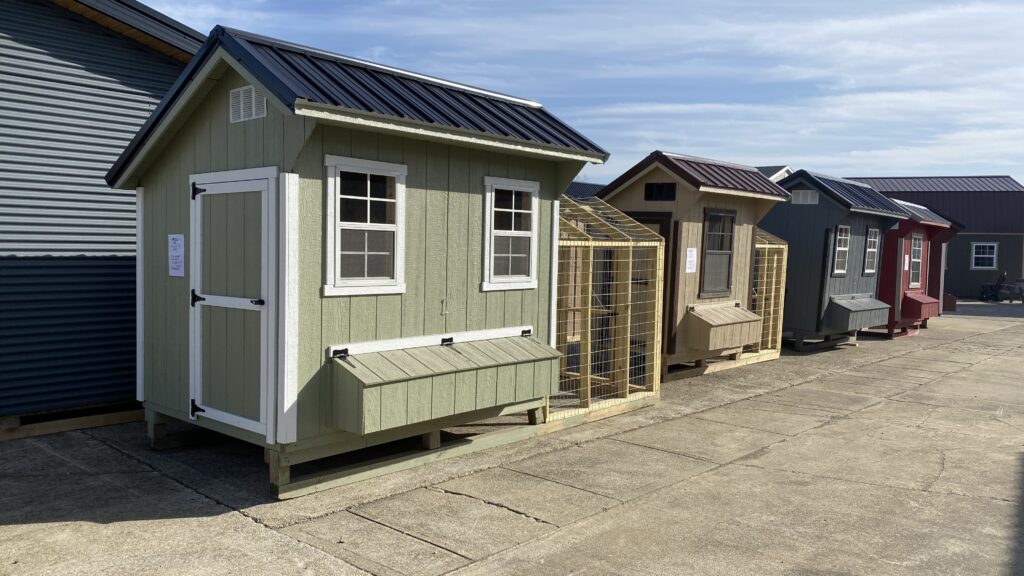How Big Should a Chicken Coop Be
Estimated reading time: 7 minutes
Creating your chicken coop requires grasping the ideal size needed to promote your flock’s well-being and contentment. The appropriate dimensions for a chicken coop are influenced by aspects such as the quantity of chickens you have, the chicken varieties available, and the environment around you.A sized coop enables your chickens to flourish regardless of whether you have small breeds, middle-sized fowls, or large poultry breeds.

The Amount of Space Needed for Each Chicken.
Typically speaking when it comes to accommodating your chickens in a coop area you should aim for around 2 to 4 feet per bird depending on the breed and size of the chicken you’re keeping in mind for their comfort and well being, in your backyard setting. Making sure you’ve got the size for your chicken coop is essential, to keeping your flock healthy and ensuring you get the most eggs possible.
Considering the Changing Seasons and Environmental Factors.
The weather in your area is crucial when deciding on the size of your chicken coop. During summer months when its hot outside you’ll need a coop with good ventilation to keep your chickens cool and allow air to flow freely. On the side during winter when its cold an oversized coop might need extra insulation to keep your chickens warm and cozy. It’s important to find the balance, in choosing a chicken coop size that keeps your flock comfortable all year round.
When you’re planning out your chicken coop setup make sure to set ample room for nesting boxes and roosting bars. A general guideline is to have one nesting box for every 3 to 4 chickens. This way your hens will have a spot for laying eggs preventing any issues with dirty eggs caused by crowded nests. It’s also important to provide space for roosting; chickens require enough space to perch comfortably aim for around 8 to 12 inches of roosting bar, per bird. Insufficient space in chicken coops can cause stress and reduce egg production, for the chickens housed within them.

Outdoor Chicken Enclosure
When setting up a chicken coop for your feathered friends to use freely move around in their outdoor run is an essential aspect to consider as well! Letting the chickens explore and engage in their behaviors is crucial for their well being and happiness on the farm or homestead. Free range chickens typically require an amount of space in their outdoor run area to thrive and stay healthy. Even more than what they have inside the coop itself! Its generally advised to allocate around 8 to 10 feet of space per chicken in the outdoor run for them to stretch their wings and peck around happily. Of course. If you can provide more room for them to roam about freely it’s always a plus! Especially, for breeds of chickens that need that extra space to strut about comfortably without feeling cramped.
Size Per Chicken
To house a group of 6 sized chickens comfortably in your coop area should ideally be between 12 to 18 square feet in size for them to move around freely and feel at ease. If you have sized chickens as pets or livestock it is recommended to provide approximately 2 to 3 square feet of coop space per bird. For bantam chickens a smaller coop with about 1.5 to 2 square feet, per chicken might suit them better. In case you are caring for breeds of chickens it’s best to plan for a more spacious coop so that each chicken has enough room and can avoid feeling stressed or cramped. Finding the balance of space is crucial; too much can make it tough to keep warm during cold weather and too little can cause behavioral problems and lower egg production.

Measure the area of where you plan to build the coop, and consider how much space will be needed for nesting boxes, perches, and storage
Before building a coop for your feathered friends, it’s important to measure the area where you plan to construct it. Consider how much space will be needed for nesting boxes, perches, and storage. It’s best to have enough room for each chicken to move around comfortably and stretch their wings. Adequate space also encourages healthy behavior, like exercise and playing. A cramped and overcrowded environment can lead to stress and even aggression between your birds. So take the time to plan out your coop and give your flock the space they deserve!
Think about insulation
When it comes to insulation, it’s important to consider your specific needs in terms of weather protection. Are you dealing with harsh winds that could penetrate through traditional insulation materials? Or perhaps you live in an area where rain is frequent and you need extra protection against moisture? On the flip side, if you’re in an area with scorching hot temperatures, adding insulation that offers more shade can be a game-changer. So, take a moment to assess your specific needs and make an informed decision about the insulation that will work best for you and your home.

Measure each chicken’s wingspan and include that in your calculations when determining size
When it comes to measuring the size of a chicken, one might be inclined to simply look at their height or weight. However, wing span can also offer valuable insight into just how large each chicken truly is. By including the measurement of each chicken’s wingspan in your calculations, you can gain a more accurate understanding of their overall size and potential for growth. Plus, getting up close and personal with these feathered friends is a fun and memorable experience in itself!
Make sure there’s enough room for all chickens to stretch out comfortably and have access to food and water dishes
Happy chickens make for healthy chickens, and providing adequate space and resources is key to achieving this. When it comes to their living areas, one of the most important things to consider is the amount of room each chicken has to stretch out comfortably. Chickens that are confined to a small space can suffer from stress, aggression, and malnutrition. Additionally, it’s important to ensure that all birds have access to food and water dishes, as competition for these resources can create unnecessary tension. By prioritizing space and resources for your flock, you can keep them happy and healthy for years to come.
Conclusion
When planning the dimensions of your chicken coop some factors to keep in mind include the breed of chickens you have the quantity of chickens and the weather conditions in your area.A designed coop will offer sufficient room for your flock to lay eggs comfortably perch safely and maintain good health all year round.Regardless if you are facing winters,rainy weather or simply aiming to boost egg yield by adjusting the coop size accordingly you can ensure that your chickens are content and productive, throughout the seasons. Make sure to focus on having sufficient nesting boxes and ample roosting area for your chickens along, with a spacious chicken run to accommodate their natural behaviors and requirements.
